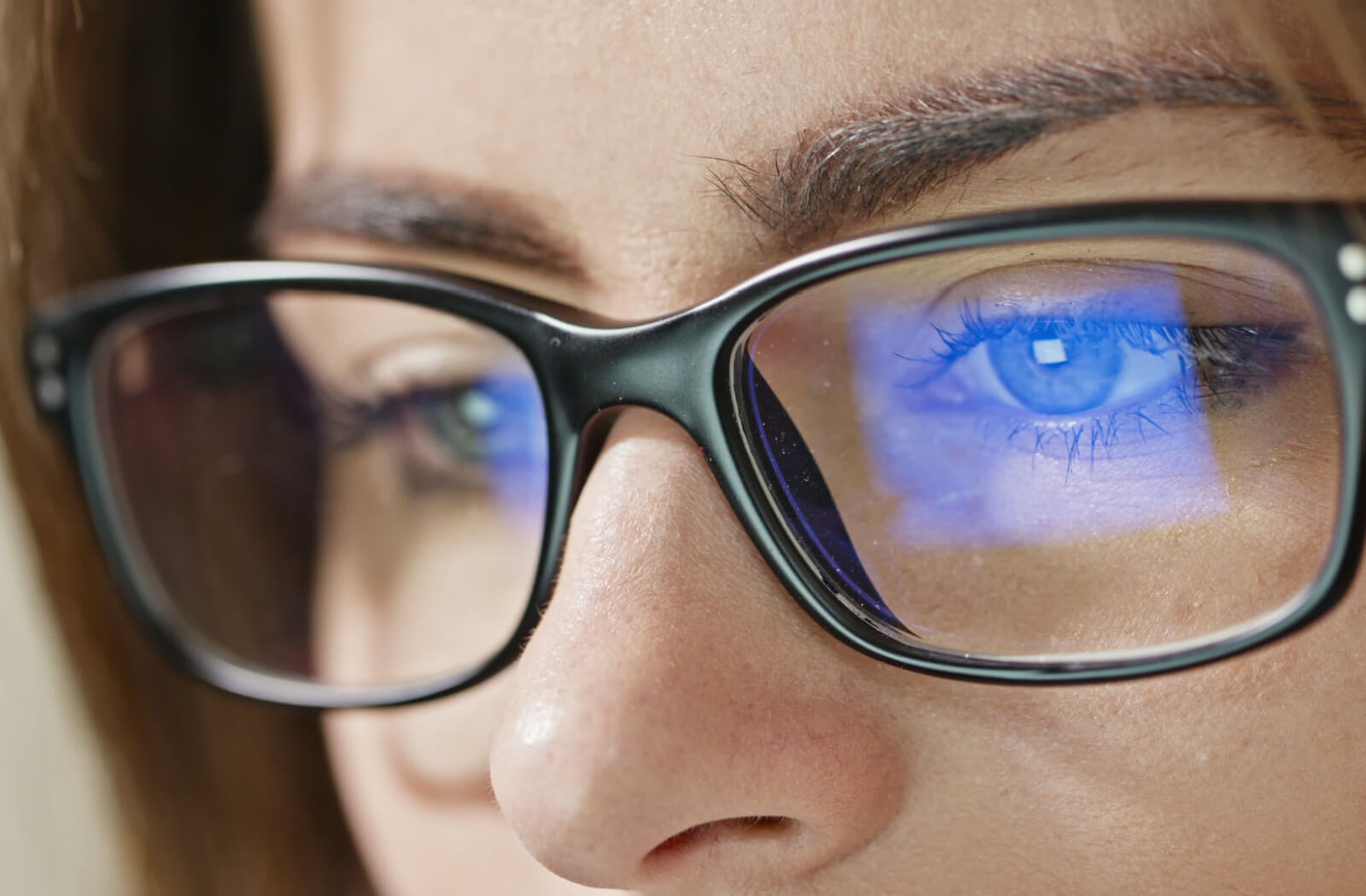When you’re starting to struggle reading fine print, it can be pretty detrimental—especially with how prevalent screens and small text are. But while specialty eyewear can help treat most types of common vision problems, how do you know how to choose between options? For example: computer glasses and reading glasses. Are they different? And if so, how?
Reading glasses are designed to correct an age-related change in the eye that makes it difficult to focus on nearby objects. On the other hand, computer glasses aim to reduce symptoms of digital eye strain and make screen usage much more comfortable for the eyes.
What are Reading Glasses For?
There’s a common age-related problem in the eye that can develop around middle age: presbyopia. When a person develops presbyopia, their eyes start to lose the ability to clearly focus on nearby objects. This is caused by the eye’s natural lens losing its elasticity. When this condition starts to develop, it can make nearby tasks much more difficult.
Reading glasses aim to bring this nearby vision back. They have special magnifying lenses that help change how light enters your eye, making it significantly easier for the eye to focus. This isn’t just useful for reading; it can be helpful for anything that needs you to be able to focus on something close to you. Whether you’re trying to sew a button, read a text message, or enjoy the Sunday cartoons, reading glasses can often help.
Are There Different Types of Reading Glasses?
However, there’s a bit of a catch; there isn’t just a one-size-fits-all pair of reading glasses that can fix your vision. Your eyes are unique, so if you develop presbyopia, you’ll need a certain prescription to correct your vision. There are a few options:
- Bifocal lenses, where there are two sections in the lenses. The lower section is for nearby vision, while the upper section is for distance. There’s often a visible dividing line in the lens that can take some time to get used to.
- Progressive lenses, where there are several prescription powers built into the lens. There are several viewing zones for different distances with a smooth transition between each prescription power, allowing you to seamlessly switch your focus with ease.
Then, there are different frames, like half-frames or full-frames. Choosing the right glasses for your needs greatly depends on your unique needs and prescription. This is why it can help to visit your optometrist to determine which choice may be better for you.
But what if you’re only noticing vision problems when you’re at the computer? Well, that’s when you should consider trying computer glasses.

What Are Computer Glasses?
Computer glasses are similar to reading glasses but aim to correct a different problem: digital eye strain.
When you spend too long using screens, like your computer or cell phone, your eyes start to get used to focusing on that set distance. Your eyes, brain, and neck are full of tiny muscles that help you focus on what you’re seeing. But just like other muscles in your body, they can get tired when they’re overworked. When this happens, it causes:
- Sore eyes
- Headaches
- Blurry vision
- Eye irritation and discomfort
- Shoulder and neck pain
- Stiffness
It’s like your eyes and head are signalling that those little muscles are tired. This is where computer glasses can help! They’re a type of specialty eyeglasses that help reduce the blue light emitted by your screens, reduce glare, and incorporate a slight magnification to make things easier on your eyes.
How Do Computer Glasses Help Reduce Eyestrain?
Computer glasses can help make extended screen usage more comfortable. After all, in today’s digital world, it’s almost impossible to get away from screens, so these glasses aim to make that time easier on your eyes.
They offer several benefits, including:
- Reducing blue light exposure
- Using anti-reflective coating to minimize glare
- Improving clarity
- Enhancing contrast
And even better, these options can be tailored to your own specific needs, which can help make things much more comfortable during those long hours at your desk.
The Key Differences Between Computer Glasses & Reading Glasses
The key difference between computer glasses and reading glasses lies in their purpose and design. While reading glasses adjust the focus and are intended for nearby tasks like reading or sewing, computer glasses prioritize reducing digital eye strain caused by extended screen time.
Depending on your needs, you may only need one instead of the other, or both pairs for different times. In many situations, you can even get a pair of specialty glasses that incorporate both designs—letting you get clear, comfortable vision while avoiding feelings of eye strain.
Where to Get Specialty Eyewear
If you’re thinking about trying reading glasses or computer glasses, come visit our team at One Vision Eyecare. We’re experienced in helping our patients find the right pair of glasses for their needs, and we can guide you through the selection process to find you frames that look and feel great. Finding the right pair of glasses can be a great way to improve your life, so book your appointment with us today!




